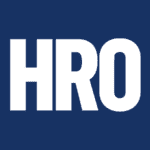The HR landscape is constantly evolving, shaped by technological advancements, changing workforce expectations, and global economic factors. As we look ahead to 2025, HR managers and business owners must stay informed about the key trends transforming the industry. Understanding and preparing for these human resources industry trends will be crucial for fostering employee engagement, maintaining competitiveness, and achieving organizational success.
HR Trends for 2025
1. The Rise of AI-Powered HR Tools
Artificial intelligence (AI) continues to revolutionize HR processes. In 2025, we expect an even greater reliance on AI-driven tools to streamline recruitment, employee engagement, and performance management. Predictive analytics will help HR teams make data-driven decisions, such as identifying high-potential employees or predicting turnover risks.
How to Prepare:
- Invest in AI-powered HR software that integrates seamlessly with your existing systems.
- Train HR staff to interpret data insights and use AI tools effectively.
- Maintain transparency with employees about how AI is used in HR processes to build trust.
2. Employee Experience as a Top Priority
Employee experience (EX) will remain a central focus in HR strategies. Employees increasingly value personalized, meaningful experiences at work, encompassing everything from onboarding to daily interactions and career development.
How to Prepare:
- Conduct regular employee feedback surveys to identify pain points and areas for improvement.
- Implement flexible work policies, such as hybrid or remote options, to accommodate diverse needs.
- Offer professional development opportunities to help employees grow within your organization.
3. Skills-Based Hiring and Internal Mobility
The emphasis on skills over traditional qualifications, such as degrees, is expected to grow. Skills-based hiring helps organizations tap into diverse talent pools, while internal mobility ensures employees can transition into new roles as business needs evolve.
How to Prepare:
- Update job descriptions to highlight required skills rather than rigid credentials.
- Develop reskilling and upskilling programs to empower your workforce.
- Leverage talent management systems to track and promote internal mobility.
4. Addressing Skills Mismatch
The rapid pace of technological and economic change has exacerbated the skills mismatch in many industries. Organizations often struggle to find candidates with the right blend of technical and soft skills.
How to Prepare:
- Partner with educational institutions to shape curriculum aligned with industry needs.
- Offer on-the-job training programs to bridge skills gaps.
- Regularly assess and update your workforce’s skills to ensure alignment with business objectives.
5. Expanded Focus on Diversity, Equity, and Inclusion (DEI)
DEI will remain a critical focus area for HR leaders in 2025. Companies will prioritize creating inclusive cultures where all employees feel valued and supported. DEI efforts will extend beyond hiring to include pay equity, accessibility, and leadership diversity.
How to Prepare:
- Conduct regular DEI audits to measure progress and identify gaps.
- Train leadership and employees on unconscious bias and inclusive practices.
- Set measurable DEI goals and hold leaders accountable for meeting them.
6. Proactive Mental Health and Well-Being Initiatives
Employee well-being has become a business imperative. In 2025, organizations will move beyond offering basic benefits to providing proactive mental health support, such as access to counseling, stress management programs, and burnout prevention initiatives.
How to Prepare:
- Expand mental health benefits and ensure employees are aware of available resources.
- Foster a workplace culture that encourages open conversations about mental health.
- Train managers to recognize signs of burnout and support their teams effectively.
7. Greater Emphasis on Sustainability in HR
Sustainability will become a key component of HR strategies as companies address environmental, social, and governance (ESG) responsibilities. Employees increasingly expect their employers to demonstrate commitment to sustainability.
How to Prepare:
- Incorporate sustainability goals into your HR policies and practices.
- Engage employees in sustainability initiatives, such as volunteering programs or eco-friendly workplace practices.
- Communicate your company’s sustainability efforts to attract like-minded talent.
8. Redefining Leadership Development
As workplaces become more dynamic, leadership development programs will evolve to focus on agility, emotional intelligence, and the ability to lead diverse teams effectively.
How to Prepare:
- Offer tailored leadership training programs that emphasize soft skills and adaptability.
- Identify and nurture future leaders early through mentorship programs.
- Encourage leaders to adopt a coaching mindset to foster team growth.
9. The Integration of Workforce Analytics
Data-driven HR practices will dominate in 2025, with organizations leveraging workforce analytics to enhance decision-making. Real-time data will be used to monitor workforce trends, improve productivity, and predict future challenges.
How to Prepare:
- Implement workforce analytics tools to collect and analyze HR data.
- Use analytics to develop strategies for talent retention and workforce planning.
- Ensure data privacy and security measures are in place to protect employee information.
10. Embracing the Potential of Workers Aged 70+
As life expectancy increases and retirement ages rise, more individuals aged 70+ are remaining in or re-entering the workforce. These workers bring decades of experience, unique perspectives, and a strong work ethic.
How to Prepare:
- Create flexible work arrangements to accommodate older employees’ needs.
- Design roles that leverage the expertise and mentorship abilities of senior workers.
- Promote intergenerational collaboration to foster a cohesive workplace culture.
11. Tackling Organizational Anxiety
Organizational anxiety, fueled by economic uncertainty and rapid change, can impact employee morale and productivity. HR leaders must address these challenges proactively.
How to Prepare:
- Communicate transparently about company changes and future goals.
- Provide resources to help employees manage stress, such as mindfulness programs or financial wellness workshops.
- Foster a culture of resilience by celebrating successes and reinforcing organizational values.
Final Thoughts
The HR trends for 2025 reflect a workforce that demands flexibility, inclusivity, and purpose. By embracing these human resources industry trends, HR managers and business owners can create workplaces that not only attract top talent but also retain and inspire them. Staying ahead in the human resources industry requires a proactive approach, a commitment to continuous learning, and a willingness to adapt to change.
Prepare now to ensure your organization thrives in the evolving HR landscape.
Make HR management one less thing to worry about. Whether you are a startup or a growing company with 50+ employees, HRO offers HR and payroll solutions designed to scale with you so that you can focus on guiding your team to success.

